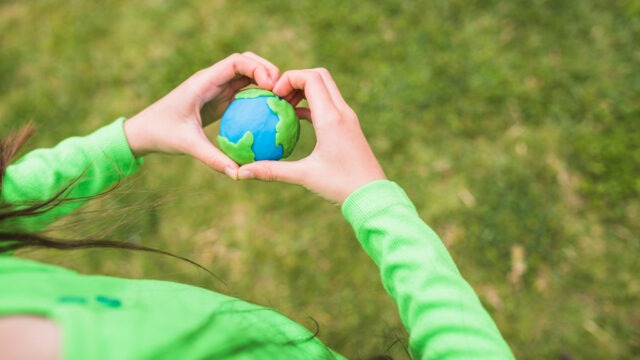In the context of the United Nations Conference on Climate Change 2021 (COP26) it is important to remember that education is always important as a driver of positive change. Learning must inspire and empower the next generation to decisively address climate change.
If the COVID-19 pandemic, and our efforts to control it, has taught us anything, it is that global crises require global solutions. We have yet to win the battle against COVID-19, but when we do, it will be because humanity worked together.
This collaboration includes a wide variety of academic and intellectual disciplines, which is highly relevant to the topic of this article. Undoubtedly, much of the credit went to the scientists, but it is important to note also that the collective initiatives were made possible by statisticians, experts in human geography, economists, behaviorists, communicators and many more.
All these people have had to collaborate, listen to each other, exchange ideas and solve problems together. If such a diverse team is required to defeat COVID-19, imagine the wealth of skills, disciplines and ideas that we will need for humanity to tackle the climate crisis before it is too late.
Schools, teachers and educators have at least part of the responsibility to educate the citizens of tomorrow, capable of participating in the kind of collaboration and exchange of ideas that we will need to avoid a climate catastrophe.
Educators can take on this great responsibility by spending time developing the curriculum and assessment model that we will need to meet this challenge. We must provide them with the appropriate educational tools to carry out the great work that we entrust to them.
Interdisciplinary learning – and transdisciplinary – is an essential part of this set of tools, since problems of this magnitude can only be solved from different points of view. But teaching and learning must also be based on a cycle of inquiry, action and reflection in which active participation assumes a leading role.
In addition to eliminating compartmentalization and isolation from subjects, the future of curriculum design must focus on three areas to ensure that the next generation is prepared to tackle climate change. We must have a curriculum that has been designed with the specific challenge in mind.
Sustainability
Sustainability must be a fundamental element of the courses and disciplines. This includes, among others, the natural sciences and subjects such as Geography, Design Technology, Economics and Business Management. We advocate for a sustainable planet and ask students to consider how the relationship between people, the planet and development is fundamental to achieving sustainability, as well as the connections between isolated subjects.
We must prioritize education in action

The curricula of the future must foster an organic relationship between learning in the classroom and sustainable actions in the community so that students can contribute to sustainability in practical ways. They must adapt learning to the context of the school: its time, place and community. Authenticity of learning is critical as learners must understand how their learning can manifest itself in the real world.
We must train young people to be “agents of change”
Curriculum and pedagogy should inspire students to make a difference and contribute to society as global citizens. We must promote the importance of “principled action”: making responsible decisions and exploring the ethical dimension of the decision to act or not to act. Students should be encouraged to explore global and local issues in a way that is not limited to awareness, but also involves commitment. They should also be encouraged to explore their own involvement, what they can do to bring about the change we need.
The pedagogy and curriculum of the future should create opportunities for students to inquire about the future of humanity and contribute to it in a positive and active way. They must enable young people to make connections between subjects and disciplines, between their values and passions and those of the communities around them.
Throughout history, schools and teachers have adapted to address many of the problems that afflict society, and the climate crisis is undoubtedly the most serious of all. It is time for education to change again. The ultimate goal of education should be the prosperity of current and future generations, so that they live in harmony with the Earth and leave in better conditions for all the people who inhabit it.


